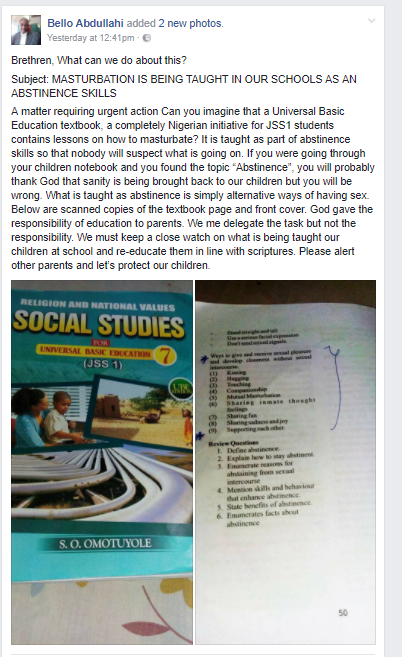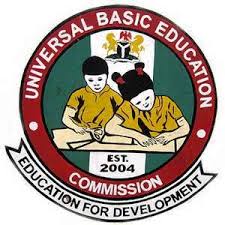Featured
The Poachers called Keepers
Published
10 years agoon
By
Olu Emmanuel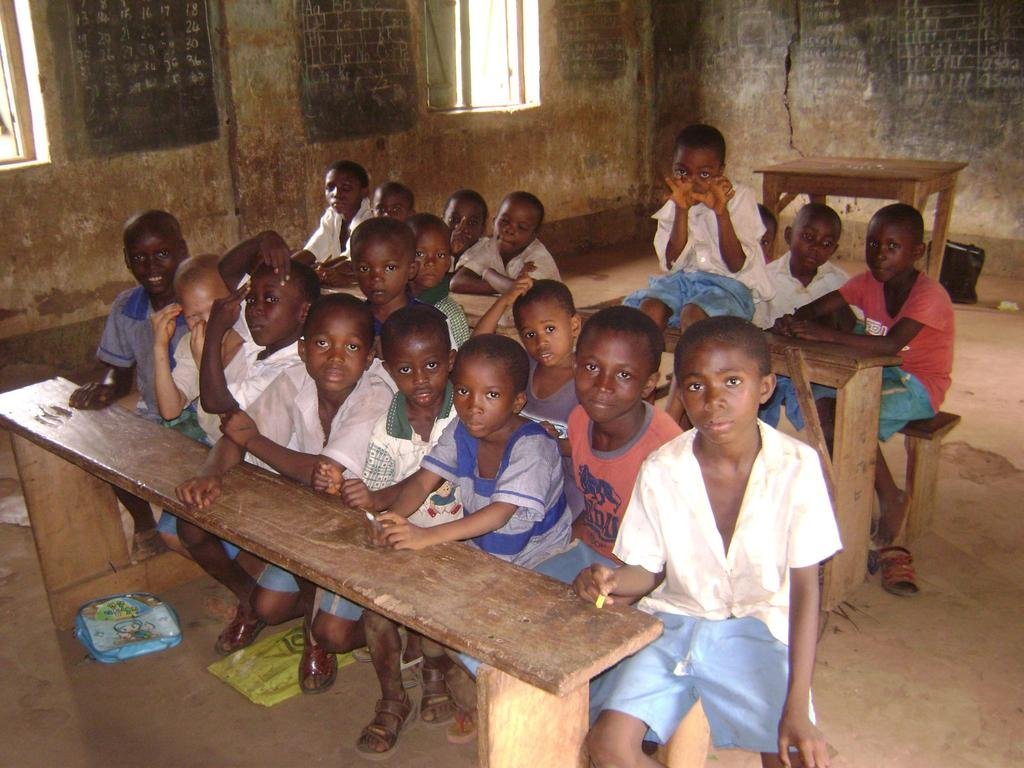
The 2015 Education For All deadline may turn out a pipedream as basic education loses steam in Nigeria. The problem isn’t money – but the moneymen nursing the idea
By Segun Elijah
The Universal Basic Education Commission isn’t necessarily out to snatch Nigeria’s 21 million children from the claws of illiteracy. More than 10 million kids roaming the streets make UBEC a bad job. But with N172 billion already doled out (from ab0ut N215 billion poured into its cash box in the last eight years), and an annual budget of N60.6 billion last year, plus N73 billion recently released as intervention fund, top of UBEC’s laundry list might be one of two priorities: to get a few million kids chattering away in their classrooms for six hours Monday to Friday. And to also keep the commission’s clique of handlers sweet. In this comity of stakeholders are federal lawmakers, ministers of education, long-haired consultants, big-time publishers, and other soldiers of fortune from the academia. The trigger had always been UBEC’s former Executive Secretary Ahmed Modibbo, and his foot soldiers.
And ever shadowing this cabal, since 2007 that Modibbo took over, are scandals. An N11 billion contract scam blown open in a federal high court in Abuja, two years ago , was pinned down to the commission’s ex-helmsman. Even now that he’s out of office, the commission still cringes under the weight of heavy allegations of sleaze. About N2 billion, National Standard investigation reveals, has been mismanaged, and creatively accounted for, in the last two years Modibbo straddled the commission. But that’s all UBEC can suffer — cringe. At least 2 percent of the federal government Consolidated Fund trickles into its coffer every year. There is also some regular handout, every year, from the Education Trust Fund. So it can always snap back. Yet, to Modibbo, the commission is a nonstarter. He has always sung it to the minders of primary education that UBEC is best as a disposable interventionist agency. “If you have an interventionist agency that lives forever, then it means the government has failed,” he told the Senate Committee on Education last year. But as a honey pot for some in the executive and legislature overseeing the education sector, UBEC remains liquid and handy enough. And it has been duly fortified.
The office of the auditor-general of the federation that raked up the recent muck can only go that far. Section 85 of the 1999 Constitution empowers the AGF to report on public accounts, and recommend to the National Assembly. The federal lawmakers, who receive and examine the auditor’s report, hold the whip. And it’s very unlikely the NASS will crack it on Modibbo. Last year, Sen. Uche Chukwumerije, the chairman Senate Committee on Education, made some move before Modibbo expired as UBEC’s boss. It was only an attempt: nothing has happened ever since. Not because the auditor’s report and its recommendations pack no punch. They roundly condemn the pillaging, ordering the indicted to explain their actions, and return the loot. Or what could have been more damning than a 20-page report carrying about 20 allegations and 22 recommendations sharply worded? The frequency at which the commission breached Nigeria’s financial regulation was high enough to have moved the legislators to probe Modibbo, or order the EFCC to get on his scent.
But inside the hallowed chamber itself, the ex-UBEC boss glows with respect. Right in the House of Rep is Aishat Moddibo, his wife of three years. Formerly Aishat Dahiru, she was Modibbo’s bedwarmer and business front. Thirteen companies registered in her name or her relatives’ consistently carried off juicy publishing contracts awarded by UBEC in 2009. National Standard investigation in 2010 revealed that the shell companies, working alongside Evans, Macmillan, and Longman, for the printing of English and science textbooks, raked in N3, 570,595,185 then. The couple’s romance eventually sizzled into marriage in 2010, and, shortly after then, Aisha eased into the National Assembly. To cap it all, she’s a member of the House Committee on Education. And there are reports claiming Aishat has been working closely with its former chairman, Hon. Farouk Lawan, now bogged in a fuel subsidy bribery scandal. Some media reports even linked Lawan to another N150 million bribe from the Modibbos. And in the Senate, a top-notch principal officier was also said to have been benefitted by Modibbo’s large-heartedness – at least in kind: 50 motorbikes to support the re-election campaign of the senator in 2011.
Modibbo’s critics believe Hon. Aisha could have secured her husband the carte blanche with which he nearly ruined the commission. To the executive, too, he was unimpeachable thanks to his generosity. He spent N37, 861,025 ferrying Minister of State for Education Nyesom Wike, in hired aircraft, around Nigeria in 2011 alone. UBEC even picked up the tabs when Wike jetted in to Edo on a condolence visit to Governor Adams Oshiomhole. Throwing money around that way, the report noted, violated the provisions of the Office of Secretary to the Federal Government Circulars, and other financial regulations on travels and transport by public officers. ‘The actions of [the minister] constitute a drain on the insufficient funds available to the achievement of set goals and objective.”
Wike, however, seems above suspicion, judging by the way he hogs UBEC. You can’t go wrong wondering if all the commission has got to do is stroke the minister’s spine. According to the reports, the UBEC sometime paid pledges made by the Wike on occasions. In another instance of the federal ministry of education draining the commission, one A.J Beredugo was employed by UBEC as Wike’s personal assistant. Beredugo was placed on the salary grade of an assistant director, drawing over N200,000 from the commission every month, since October 21st, 2011. But Beredugo’s salary, ordinarily, should have been Wike’s cup of tea, according to the Certain Political, Public, and Judicial Office Holders (Salaries and Allowances, etc) Act of 2008, Section 3, Part1 (B). It also violated the Office of the SGF Circular Ref No. 59729/T.1/154 of October 22, 2007, which disqualifies political vermin — personal assistants to political appointees like Wike — from drawing any form of allowances. Hon. Minister of Education Ruquayyatu Rufai is also in on the party. The minister, along with her junior counterpart, Wike, and the ministry’s Permanent Secretary Mc John Nwaobiala, raked in N30 million for a quarterly project monitoring gig in 2011. The threesome were smart about it this time. They engaged three mules — Yakubu Abbas, Owolabi Micheal Ofor, and Fabian Umoh — who, respectively, couriered their masters’ booty.
But that was nothing compared to the N610 million shelled out to six independent monitors for the 2011 Teachers Professional Development. The monitoring consultants were a batch of street-wise eggheads, which included Professors J.O.E Otuka, Gidado Tahir, and U. Mohammed. Wike, again, loomed large here. The approval for the transaction, this magazine learnt, was given by the minister of state for education. Ordinarily, that was more than his job’s worth. “In the absence of a substantive governing board, approval of this magnitude should be given by the Federal Executive Council (FEC). Worse still, the selection process was opaque. Section 45(2) of the Public Procurement Act of 2007 and the Financial Regulation 2950 requires the commission to request expressions of interest from these consultants.
Obviously, informed university dons now know they can make a mint of money consulting, if leisurely, for UBEC. They also make a kill just sitting on their rumps as members of the commission’s special committees. Prof. Owoicha Akpa and three others were aboard the commission’s Special Committee for Finance and General Purpose. They made N2.3 million as honoraria through voucher No. EXP/1123/10 in June 2011. The daylight robbery here is explicit: the rates approved in the Circular Ref. No. SWC/81/04S.310 issued January 16, 2007 by the National Salaries, Incomes, and Wages Commission is N75 ,000 for the chairman, and N65,000 for other members. But the board juggled the zeros so the chairman got N750,000 while others got N500,000. It worked exactly for Prof. Tunde Adeniran, a former education minister. Adeniran was contracted to hit the road for UBEC in October 2010. He and eight others got N3.1 million as transport claims. Here, the rate was ballooned too – to N200 per km. If the approved rate of N20 per km was reckoned with, then the eight travelers got N1.7 million over and above what they were due. All these shenanigans were well thought out. That is why the auditors keep insisting these UBEC’s intellectual gold diggers should be called to question.
You really don’t need a big skull to make money off the commission. Even bottom-of-the-heap staff of UBEC can morph into consultants, and make free with its funds. Tom Aliezi, definitely a wage slave at UBEC, was paid N20 million in two installments in 2011. The first tranche was deposited into his Intercontinental Bank account number 0100238131 through a payment voucher 2228 of 21/10/2011. The second was wired to his Unity Bank e-payment mandate number 011 of 24/10/2011. A phantom board was said to have approved of this payment. As of then, the auditors say there was no governing board. And the job: some “high-level monitoring” of distribution and use of the instructional materials the federal ministry of education supplied then. Whatever that means! But the gut of the fraud was the absence of names to confirm who did what and when. About N19 million was paid in 2011 without sufficient paper trails. Earlier in 2010, N12 million was forked out, with little documentation, on “advertorial at 50th Independence Anniversary of Nigeria”. The report uncovered 17 payment vouchers to eight media houses that carried the advertorial. But Willy-Wills Associates, not the media houses, actually got the money. Another N35.3 million was advanced same way, contrary to the Bureau of Public Procurement Act of 2007, which made cash transaction an exception. But everybody’s doing it at UBEC. Some of the advances, totalling N99 million, were not even retired. Some N1.1 million was doled out in like manner — to recipients whose voucher names never appeared in UBEC’s cashbooks
Apart from cooking the books, UBEC also excels at contract racketeering. It usually pays 15 percent mobilization fees to consultants who aren’t guaranteed by bank or insurance bonds. According to the auditors, one Assistant Director Team Ltd, in September 2010, was paid N3.8 million, which was 15 percent of the contract sum, as the mobilization fee through PV No. EXP/2037/2010. There was no guarantee whatsoever.
And where guarantees were provided, UBEC’s perennial corporate friend contractors still got pampered. This is rampant among the commission’s publishers. Perhaps the reason won’t be far from Aishat’s cordial relations with Longman (now Learn Africa Plc) and others back in the days. The company was part of the 2009 contract for publishing and distributing science textbooks. The most recent business the publisher landed with UBEC was the primary English and maths textbook printing contract. Learn Africa, particularly the Felix Iwerebon House office at Oba Akran in Ikeja, according to the auditors, got N1.2 billion to print and distribute 2,3 million of both titles to the states . The payment vouchers were PVA 533 and PVA 532. Two million copies were eventually printed and distributed. The commission got the short end of the stick again, while Learn Africa made N153 million as overpay. National Standard sought clarification from the publisher. Its staff, however, prefers to keep mute. “You will have to get UBEC’s position first,” the Lagos office told the magazine. Maybe Learn Africa is waiting for the commission to justify the bazaar. It was all hide-and-seek, as UBEC, too, kept dawdling. “l have contacted the various units for their responds(sic) which l will collate and give you a respond(sic) soon,” David Ape, UBEC’s image launderer told National Standard in an e-mail response. As at the time of going to press, the commission hadn’t got anything to say.
The sins of the Modibbo-led UBEC were both financial and moral. Between 2010 and 2011 the report covers, the commission misappropriated N170,351,442.89 billion and N1,011,218,373 billion respectively. More than that, it brazenly flouted cardinal civil service codes, time and again, in those two years. Modibbo really hated any bean counter goggling at the commission’s account. For the five years he spent at UBEC, he never submitted its audited account for external vetting. As of March, the accounts of 2008 to 2010, National Standard source says, were yet to be submitted. Modibbo actually ensured there was no accounting manual and internal audit guide. The jungle resulting from this was just the ticket for all the heists that went on in the commission.
With such bald-faced disregard for due process, and a knack for cracking financial codes, Modibbo and his collaborators have been able to spring many anticorruption mousetraps. In the last five years, the EFCC has not got the go-ahead to ruffle UBEC yet, though the ICPC, in 2007, claimed it recovered N488 million looted from the commission. It’s only human rights activists and other concern parties that have been peppering Aso Rock with petitions against UBEC’s officials and supervisors. The Civil Society Network Against Corruption, a coalition of 150 groups, wrote to President Jonathan in July. Their gripe was how Modibbo and Wike mismanaged National Teachers Institute’ and UBEC’s N50 billion. The Peace Building Humanitarian Initiatives (PBHI) took its own agitation directly to the Lady of Justice, apparently asking her to steamroll the EFCC into probing Modibbo, Wike, and Ruqayyat. In a suit filed onJune 3, 2010 in the Abuja Federal High Court, the PBHI sought “a declaration that the education minister should order a thorough investigation of the activities of Modibbo.” Joining the swelling flank of ragtag opposition against Modibbo was the Human Rights Writers Association (HURIWA) last September. It was particularly worried Modibbo was still hanging on, like grim death, at UBEC. “Why is the federal government breaching an extant provision of the law by allowing him to stay
beyond the five-year statutory period which lapsed on August
24th, 2012?” HURIWA asked in a statement it issued then. But their knee-jerk protest panned out well as Modibbo stepped out of the commission thereafter.
Still, stepping out, to many Nigerians, is different from rendering account. And the only bodies that can make Modibbo account for his financial recklessness at UBEC are the EFCC, the ICPC, and the Code of Conduct Bureau. But these are no threat to him and his backers. He began courting the three in 2010. The stench of the rot in UBEC, then, was so much that the National Assembly, courts, and the media had to look in its direction. There was the hijacking of the N6 billion school feeding project initiated by Oby Ezekwesilie, a former education minister; the Intermarkets plastic chair contract scandal; and the English and science textbooks publishing scandal. In a masterly countermove, Modibbo convened an anticorruption conference. His VIPs were Farida Waziri, a former EFCC chairman; Justice Emmanuel Ayoola, ICPC’s ex-boss; and Sam Asaba of CCB. The move turned out a winner. Modibbo wrested a vote of confidence from the National Assembly, and later bagged the 2010 Heroes Award from the Foundation for Transparency, Accountability, Good Governance and Integrity. The international NGO said it recognised Modibbo’s dedication to accountable, credible and transparent leadership.
The fact is: UBEC’s plunderers will pull out all the stops to cover their asses. But primary education is dying out there. Since 2009, Nigeria has maintained its world record of the highest out-of-school children. Unicef even claims 40 percent of preteens in Nigeria are on the streets. And up north, the region where the Yola-born UBEC chief comes from, the problem worsens. In Bauchi and Sokoto, for instance, USAID, one of the U.S aidgivers, has found out 70 percent of the primary 3 school kids can’t read. Well, Modibbo is thoroughly familiar with that — either through the Almanjiri initiave he allegedly cocked up, or his findings he once told the Senate education committees – that more than 50 percent of the primary 5 teachers in Sokoto can’t read the pupils’ textbooks. Ironically, he is making a statement: UBEC or not, the federal government funding primary education for all is a huge joke. He told the FEC in 2007 that even if Nigeria’s annual budget was committed to the UBE, the nation wouldn’t meet its basic education goals. For the lucky 10 million kids UBEC has captured in its dragnet, going to school could mean a number of things: yawning all day before teachers who are dumber than the kids they teach; or huddling in hellholes where learning is impossible. UBEC claimed it has commissioned about 6,342 projects so far, Nigerians are yet to see them put to use. There are still many school buildings Modibbo himself wished he could tear down.”If we have powers to close them, if we have powers to sanction any state that is employing unqualified teachers, it would go a long way in helping the children,” he told the Senate Committee on Education last year.
Investing UBEC with more powers, many believe, could only make it into a Frankenstein. And it’s okay by Wike, Ruquayyat, all the UBEC consultants, Longman, and other contractors. But for the 45 percent of Nigeria that badly need the three Rs, it could mean hell.
Story first published in National Standard magazine in August 2013
You may like
Trending

 Latest3 days ago
Latest3 days agoYoruba film industry mourns as popular actress aunty Ajara passes away

 Trends4 days ago
Trends4 days agoTonto Dikeh reunites son with Churchill after decade-long split

 Energy1 week ago
Energy1 week agoNNPC unveils gas master plan to boost Nigeria’s energy sector
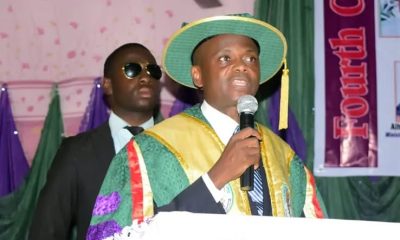
 Education1 week ago
Education1 week agoAchievers University expels 15 female students over indiscipline

 Business6 days ago
Business6 days agoRite Foods positions industry as catalyst for Nigeria’s clean energy transition

 Football6 days ago
Football6 days agoArsenal’s Osman Kamara completes permanent move to Blackburn Rovers

 Health5 days ago
Health5 days agoControversial preprint revives vaccine–autism debate, draws sharp pushback from medical experts
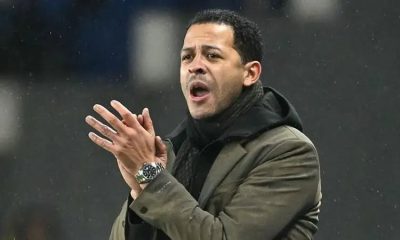
 Featured1 week ago
Featured1 week agoEPL: Palmer fit for Chelsea’s match against West Ham – Rosenior


